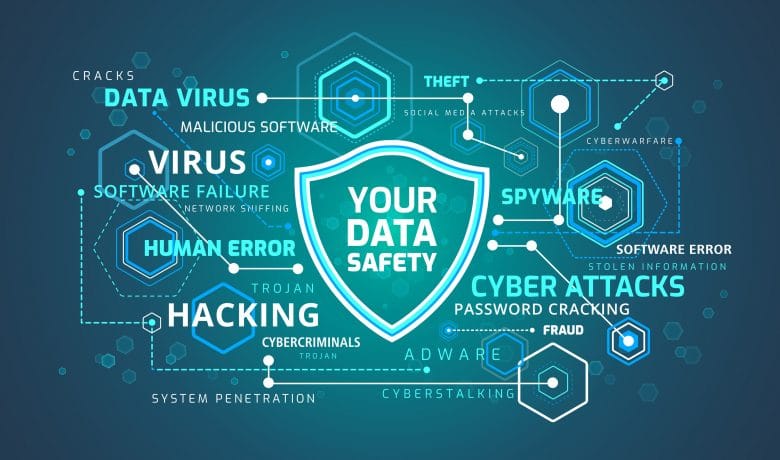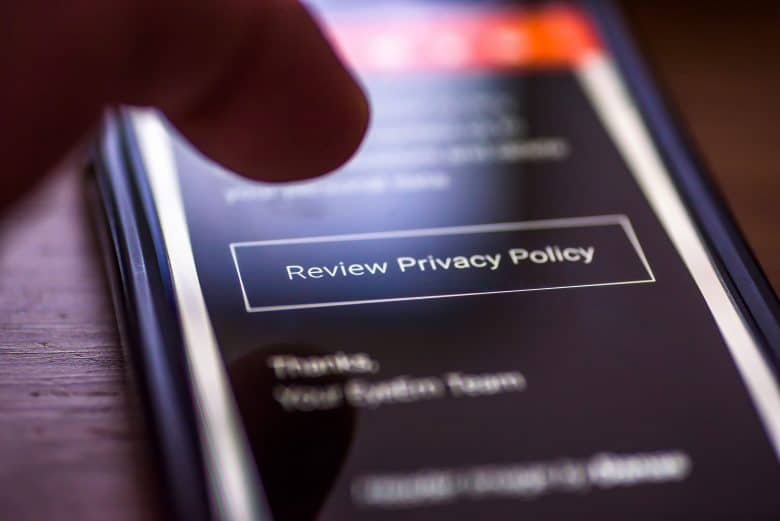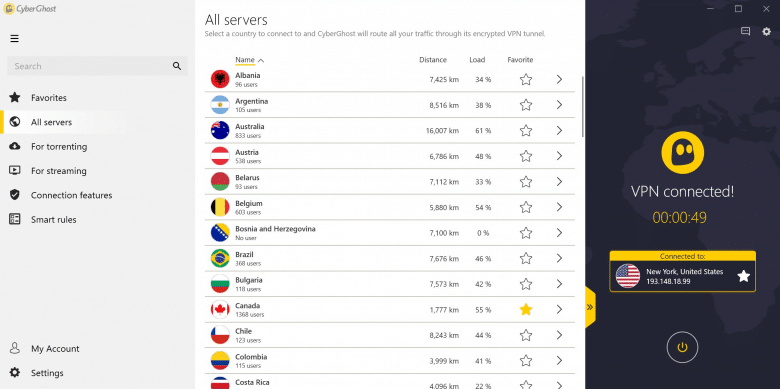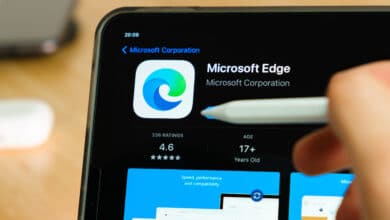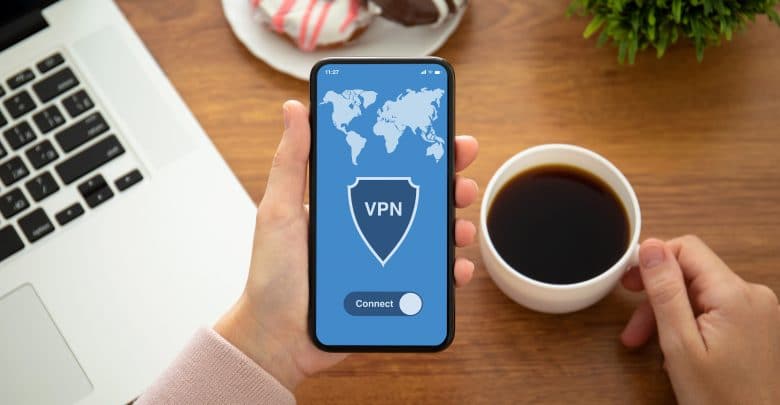
The Internet is often regarded as the maximum free space in which much is possible. Unobserved surfing, free movement in almost unlimited space, infinite freedom. In fact, however, it has a number of downsides that are contrary to many of the basic assumptions we have about cyberspace. When we surf the net, we feel unobserved and safe. We sit in our living room at home and yet the whole world is open to us on a small screen. What we do not consider is the fact that it is not necessarily a one-way street. In a sense, the big, wide world also moves into our home living room when we enter the net. We are not as free and above all as unobserved as we feel.
However, this article is by no means intended to fuel fears or even spread panic. In the context of these lines, we would just like to take a look at a simple possibility of actually moving freely and unobserved in the net. The solution we would like to present is VPN (“Virtual Private Network”).
Our Tracks on the Net
If we go on the street, we can expect in the worst case with curious looks of the neighbours. At the latest when we have turned around the next corner, they no longer know where we want to go, what we are planning and where we are moving. The danger of being followed and observed on the road is low. We may leave tracks on traffic cams or in stores we enter. But off the beaten track of public life, we are largely invisible as long as we do not carry around any technical devices that enable us to locate them.
It’s different on the Internet. Here the curious glances of the neighbours are missing, who carefully pull out their binoculars behind their curtains. This lack of obvious curiosity makes us feel secure. There are no traffic cameras on the Internet and no surveillance equipment in petrol stations or supermarkets. We feel much freer and more unobserved. As long as no one literally looks over our shoulder, our online behavior remains secret, we think. Far from it!
In many cases we leave far more traces on the net than in the analogue world. The signs that point to this, however, are much more subtle than we are accustomed to from this very analogue world. Critical looks, binoculars and cameras are clear signs – we are not alone and under observation. On the other hand, advertising that happens to meet our taste is much less suspicious. Or search suggestions that randomly list results from our hometown at the top.
In fact, however, all of these are hardly to be surpassed in terms of clarity. The audition of personalized and location-based advertising can hardly be surpassed in its expressiveness. In the analogue world, it is almost unthinkable to strategically analyse all our steps, every appearance on market surveillance tapes and every movement and draw conclusions about our behaviour and preferences. We’d feel monitored, spied on, cheated and manipulated. In the net, which we consider to be a safe haven, all this is not only possible, but perfectly ordinary.
It is possible because of all the traces we leave with every click, every search query and every other activity. If we read an article, we can assume that there are various programs working in the background that analyze our behavior. What are we interested in? What makes us click on certain links? How long do we stay on certain pages? The more active we are on the web and the more pages we visit, the more meaningful the profiles that can be created based on our movements and behaviour become.
For advertisers, these collections and analyses are worth their weight in gold. They give us an idea of what we would like to have, what excites us, what delights us, what we like to do. It’s no coincidence that as a technology enthusiast you see advertisements for computers, smartphones and related accessories over and over again, while your sports-loving friend encounters advertisements for dumbbells and footballs.
At the latest since the general excitement surrounding the basic data protection regulation, a broader public has been aware of the extent to which various services collect data when we surf the net. Our IP address, our whereabouts, entire geographical profiles with frequent access points, interests, preferences, pages visited, etc. etc.
If we want to protect ourselves at least a little, not to disappear completely into filter bubbles, to become untraceable or simply to gain a greater feeling of security, VPN access is highly recommended.
Anonymous and Comprehensive: The Advantages of VPN Access
Probably the biggest advantage of VPN access has already been presented: It allows far-reaching anonymity on the net. When we use virtual private networks to access the Internet, it is not so easy to track who we are, where we are, what we do online, and what we are interested in. In this way, we actually create a largely free space in which we can move almost anonymously.
We also benefit from further advantages: Displayed content is no longer automatically tailored to the interests and preferences identified in the past. In this sense, we receive uncensored, unfiltered advertisements, but also editorial content and suggestions. Many sites strive to provide users with the best possible experience in order to convince them of their own services and encourage them to stay on the site, which ultimately has a financially positive effect on the operator via detours. For this reason, algorithms often ensure that we are predominantly shown content that we are more likely to like or otherwise be interested in – that is, based on our previous network behavior. If interpreted positively, this may increase the attractiveness of the content. Negatively interpreted, however, we run the risk of disappearing deeper and deeper into a filter bubble and hardly noticing anything outside this filter bubble, let alone being able to look at it in a differentiated way. VPN access frees us from this restriction by granting unfiltered access again.
But the advantages of VPN access are by no means exhausted. For example, the access that also disguises our location allows us access to data that is normally blocked in our actual geographical location. If we ignore the political possibilities that result from this, this is particularly advantageous in the entertainment sector – for example, access to US Netflix or similar services that are normally not accessible in Germany beckons us. This works by making the VPN server pretend to the server providing the data that the attacker is in a country where access to the requested data is enabled.
At the political level, the benefits are far greater – a VPN access not affected by geo-blocking allows far-reaching access to information from all over the world that might not normally be accessible at the VPN user’s location.
How Do Such VPN Accesses Work?
The functionality of virtual private networks is quite simple. What is required is VPN software – a program that is operated from the user’s Internet-enabled device. This program connects the device, which thus becomes the VPN client, to the VPN server of the VPN provider. Access to the Internet is then not directly via the device used, but via the VPN server. In this way, the traceable IP address of the device used is replaced by the IP address of the VPN server.
The request made to a website, for example, does not reach the website directly, but goes via the VPN server. The data transmitted via the VPN server is encrypted. From the outside, it is either impossible or extremely difficult to track who is requesting what and when via the VPN server. Thus the identity of the user is best concealed by the use of the VPN server.
The security of the user is increased by the fact that all users of a VPN server share a small pool of IP addresses. The IP address used cannot therefore be assigned to a single VPN user. However, the number and size of data packets sent and the frequency of VPN usage can be tracked. In case of doubt, conclusions could be drawn about the type of data requested. Nevertheless, VPN access is extremely secure and anonymous compared to normal, unencrypted Internet access.
Most VPN providers offer their users the possibility to select the country to which the IP address should be assigned. You can choose between different countries, which offers the possibility to escape geoblocking on a large scale.
Vendor of VPN Servers
In the meantime there are several VPN providers. The vast majority of these providers offer subscriptions that are more or less affordable. A free alternative, which however does not offer all functions of a VPN server, is the Opera browser. This very common Internet browser has a built-in VPN access, which can be activated with a mouse click. If it is activated, the user surfs completely anonymously. However, the selection of countries from which the IP address output can originate is by no means extensive with the Opera browser. If you want to avoid geoblocking in order to access your Netflix subscription in other EU countries or to gain access to entertainment sites from the USA, the browser should still be a good choice. If you want even more possibilities, you could be happy with CyberGhost – the costs are limited with this VPN provider.
